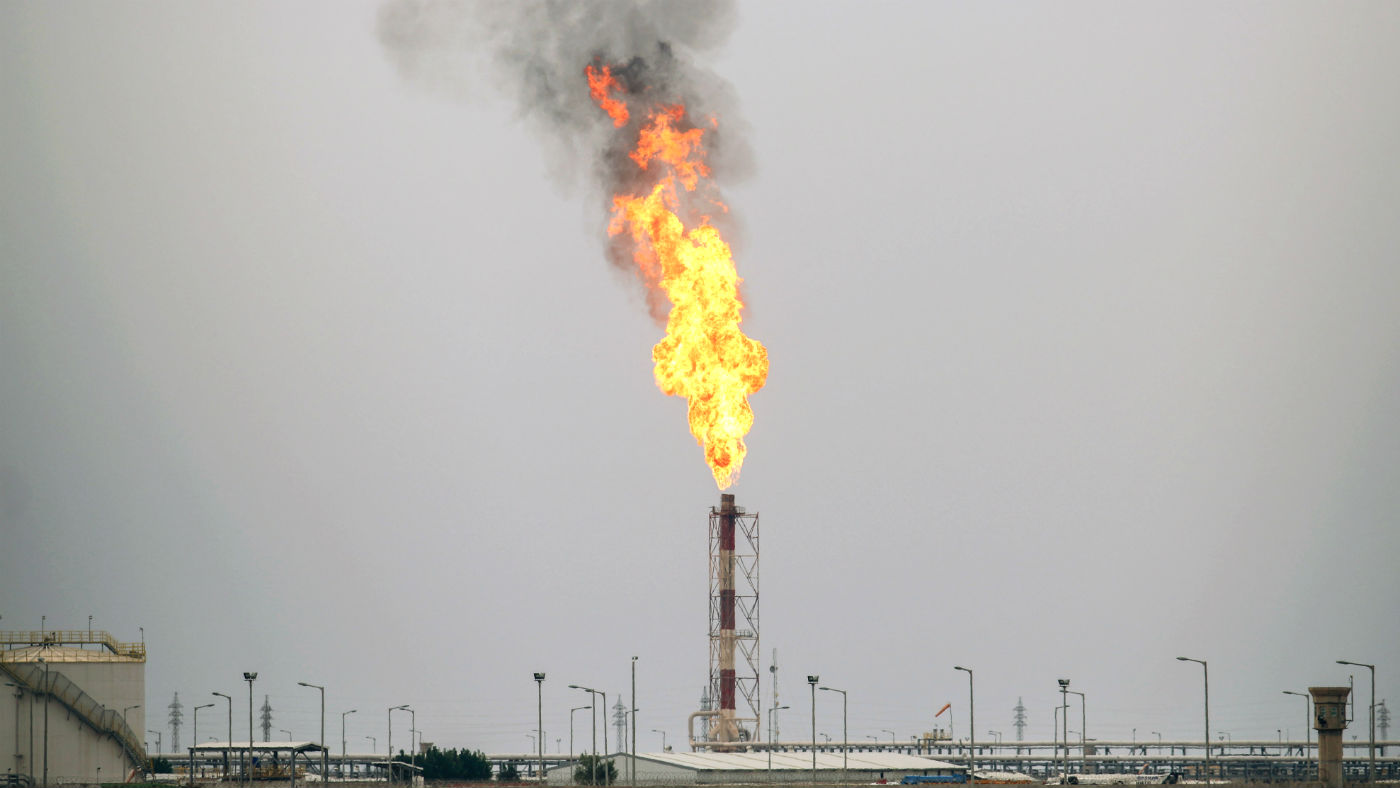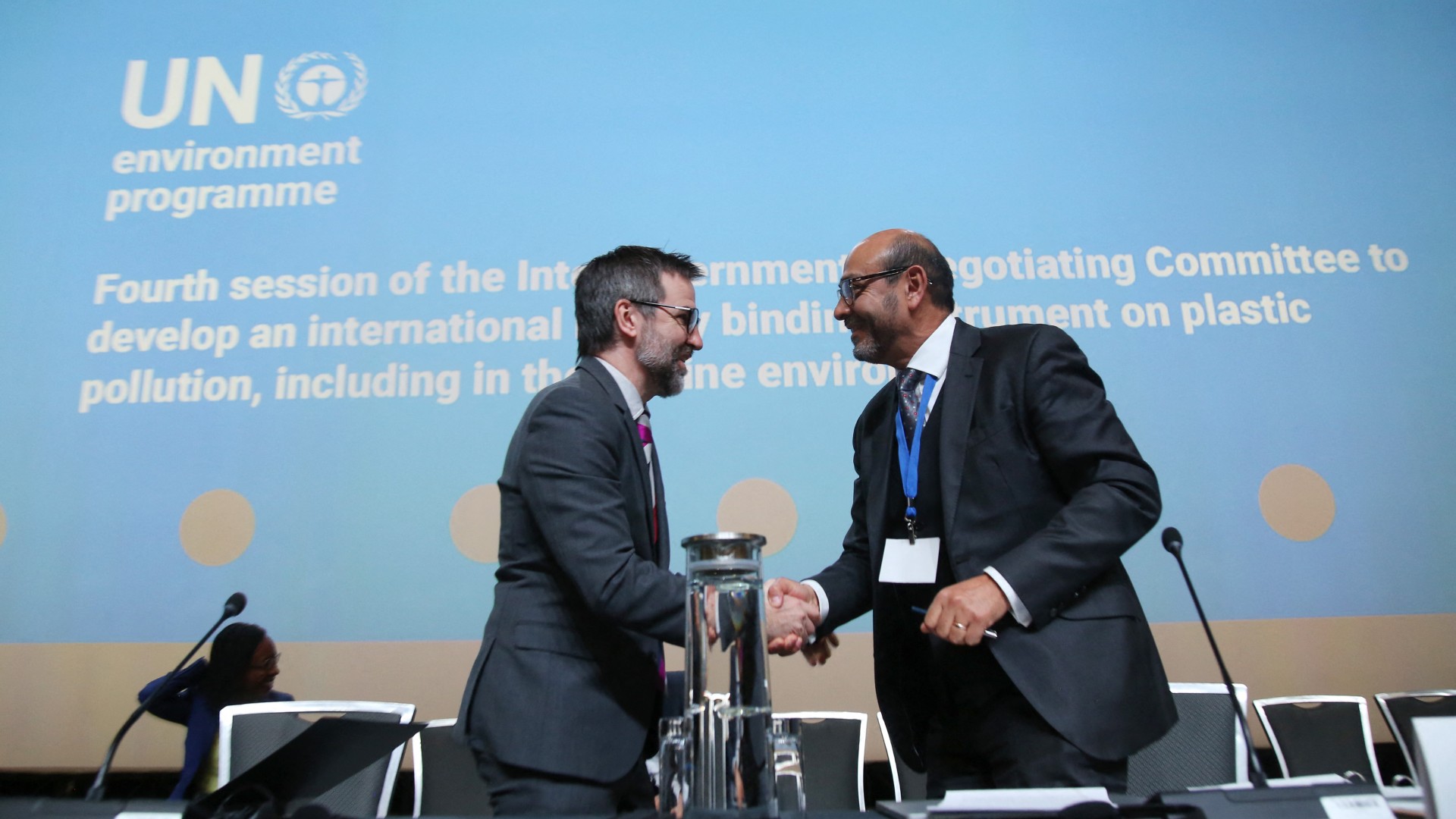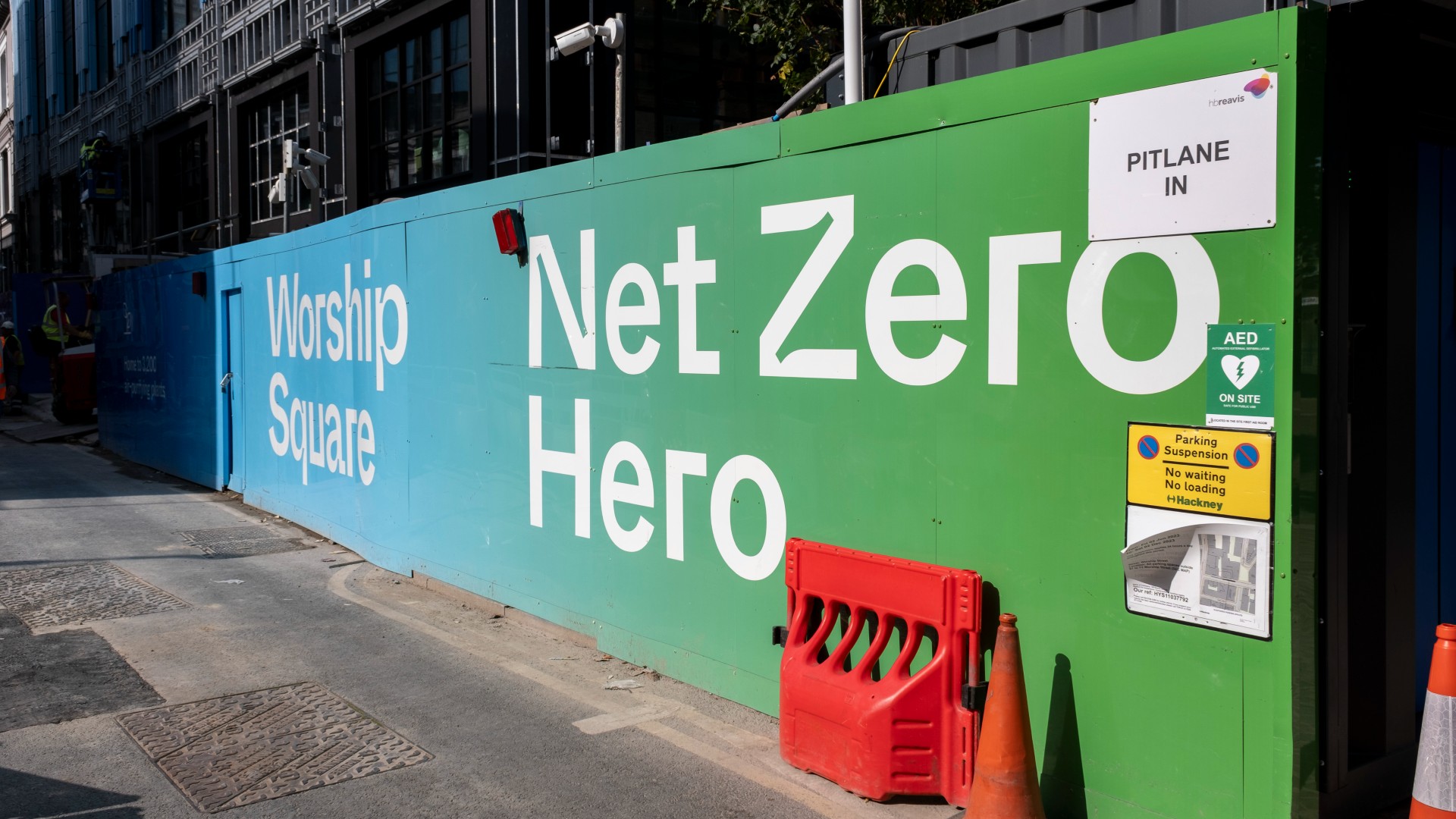Atmospheric greenhouse gas emissions hit record highs last year
Report from World Meteorological Organization is expected to ‘add urgency’ to Cop27 talks

A free daily email with the biggest news stories of the day – and the best features from TheWeek.com
You are now subscribed
Your newsletter sign-up was successful
Greenhouse gases in the Earth’s atmosphere hit a record high in 2021, according to a new report by the World Meteorological Organization.
The WMO’s latest annual Greenhouse Gas Bulletin found that concentrations of carbon dioxide, methane and nitrous oxide, the three main greenhouse gases responsible for trapping heat in the atmosphere and driving global warming, reached new highs last year.
It is “no mystery about what is behind the rise in carbon dioxide and nitrous oxide”, said New Scientist.
The Week
Escape your echo chamber. Get the facts behind the news, plus analysis from multiple perspectives.

Sign up for The Week's Free Newsletters
From our morning news briefing to a weekly Good News Newsletter, get the best of The Week delivered directly to your inbox.
From our morning news briefing to a weekly Good News Newsletter, get the best of The Week delivered directly to your inbox.
The increase in carbon dioxide is “mainly from the continued burning of fossil fuels and cement production” and high levels of nitrous oxide are “primarily from nitrogen fertiliser, burning fossil fuels and several industrial processes”.
Meanwhile, said The Guardian, “most of Europe’s methane emissions come from agriculture – particularly livestock”.
“Because the most common greenhouse gas, carbon dioxide, lasts in the atmosphere for hundreds of years, its concentrations are expected to continue to grow rather than diminish for a very long time,” said The Hill.
NBC News said the WMO’s report “adds urgency” to the UN Climate Change Conference, known as Cop27, which will be held in Egypt next month.
A free daily email with the biggest news stories of the day – and the best features from TheWeek.com
Cop27 is on track to be one of the largest in the summit’s history, with 35,000 people registered to attend the meeting in Sharm el-Sheikh.
Meanwhile, a separate report released by the UN warned that the world is “nowhere near” hitting its targets to cut greenhouse gas emissions. The planet is on track to see temperatures rise to 2.5C (4.5F) above pre-industrial averages by the end of the century.
The report concluded that “while emissions are no longer increasing after 2030, they are still not demonstrating the rapid downward trend science says is necessary this decade”.
Chas Newkey-Burden has been part of The Week Digital team for more than a decade and a journalist for 25 years, starting out on the irreverent football weekly 90 Minutes, before moving to lifestyle magazines Loaded and Attitude. He was a columnist for The Big Issue and landed a world exclusive with David Beckham that became the weekly magazine’s bestselling issue. He now writes regularly for The Guardian, The Telegraph, The Independent, Metro, FourFourTwo and the i new site. He is also the author of a number of non-fiction books.
-
 Bad Bunny’s Super Bowl: A win for unity
Bad Bunny’s Super Bowl: A win for unityFeature The global superstar's halftime show was a celebration for everyone to enjoy
-
 Book reviews: ‘Bonfire of the Murdochs’ and ‘The Typewriter and the Guillotine’
Book reviews: ‘Bonfire of the Murdochs’ and ‘The Typewriter and the Guillotine’Feature New insights into the Murdoch family’s turmoil and a renowned journalist’s time in pre-World War II Paris
-
 Witkoff and Kushner tackle Ukraine, Iran in Geneva
Witkoff and Kushner tackle Ukraine, Iran in GenevaSpeed Read Steve Witkoff and Jared Kushner held negotiations aimed at securing a nuclear deal with Iran and an end to Russia’s war in Ukraine
-
 The environmental cost of GLP-1s
The environmental cost of GLP-1sThe explainer Producing the drugs is a dirty process
-
 ‘Like a gas chamber’: the air pollution throttling Delhi
‘Like a gas chamber’: the air pollution throttling DelhiUnder The Radar Indian capital has tried cloud seeding to address the crisis, which has seen schools closed and outdoor events suspended
-
 Why is the world so divided over plastics?
Why is the world so divided over plastics?Today's Big Question UN negotiations on first global plastic treaty are at stake, as fossil fuel companies, petrostates and plastic industry work to resist a legal cap on production
-
 Anti-anxiety drug has a not-too-surprising effect on fish
Anti-anxiety drug has a not-too-surprising effect on fishUnder the radar The fish act bolder and take more risks
-
 Oysters from New York's past could shore up its future
Oysters from New York's past could shore up its futureUnder the Radar Project aims to seed a billion oysters in the city's waterways to improve water quality, fight coastal erosion and protect against storm surges
-
 Ottawa climate talks: can global plastic problem be solved?
Ottawa climate talks: can global plastic problem be solved?In the Spotlight Nations aim to draft world's first treaty on plastic pollution, but resistance from oil- and gas-producing countries could limit scope
-
 EPA limits carcinogenic emissions at 218 US plants
EPA limits carcinogenic emissions at 218 US plantsSpeed Read The new rule aims to reduce cancer-causing air pollution in areas like Louisiana's 'Cancer Alley'
-
 The push for net zero
The push for net zeroThe Explainer Britain has committed to reaching net-zero carbon emissions by 2050. What will this involve?